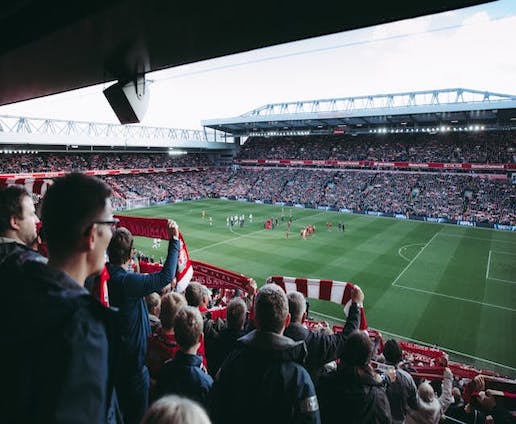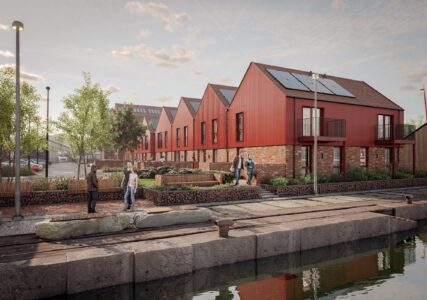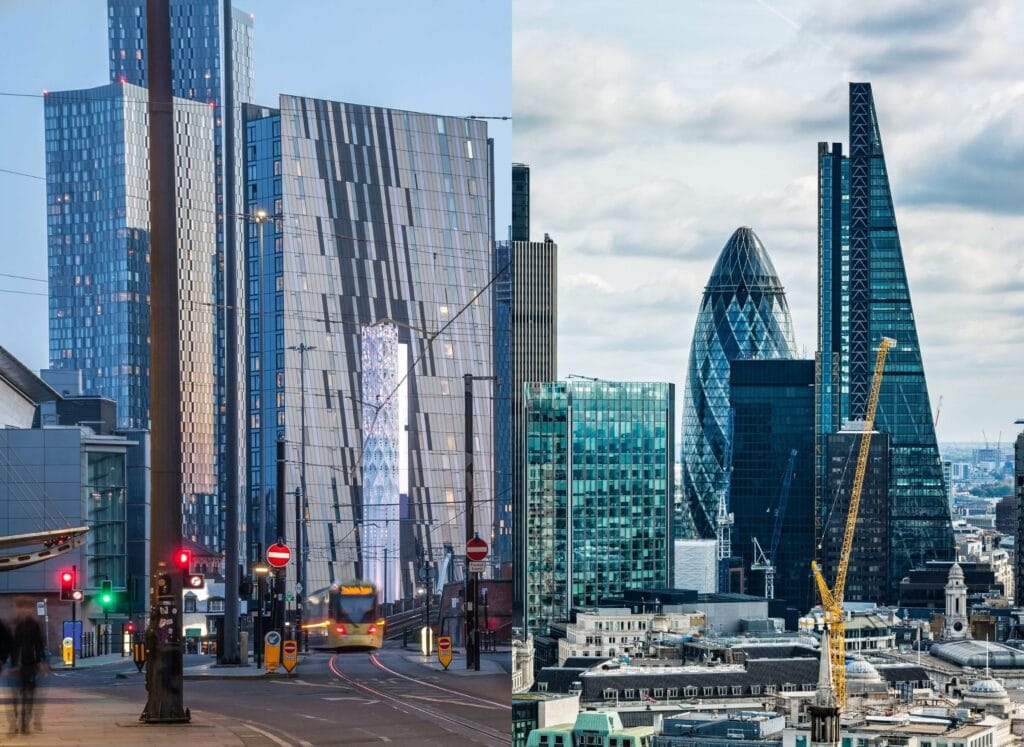Football’s influence on Liverpool’s real estate market is a fascinating study of the intersection between sport and urban economics. In Liverpool, the presence of two Premier League giants, Liverpool FC and Everton FC, has sculpted not just the cultural and social landscape but also the very fabric of the city’s property market. In this article, TK Property Group delves into the multifaceted impacts of football on real estate in Liverpool, weaving through economic growth, tourism, community identity, and the challenges of gentrification.
Economic Growth and Urban Regeneration
The economic stimulation provided by football in Liverpool is undeniable. The sport has been a catalyst for urban regeneration, particularly in areas surrounding Anfield and Goodison Park. The stadiums themselves are more than just venues for matches; they are hubs of economic activity, generating employment, and spurring improvements in local infrastructure. This economic vibrancy often translates into a more dynamic real estate market.
Property values in proximity to the stadiums have seen appreciable increases, buoyed by the enhanced transport links, retail outlets, and hospitality venues designed to cater to fans. Investors and homeowners alike are attracted to these areas, not just for their sporting significance but for the tangible benefits to quality of life and accessibility. As a result, both residential and commercial properties enjoy a premium, a testament to the economic ripple effect of football.
Tourism’s Impact on Property Demand
The global appeal of Liverpool’s football clubs has turned the city into a magnet for tourists, many of whom come expressly to experience the thrill of a Premier League match. This influx of visitors has a direct impact on the real estate market, particularly in the short-term rental sector. Properties located near the stadiums or along key transit routes are especially sought after, leading to a boom in the development of accommodations ranging from luxury hotels to boutique Airbnbs.
This demand for short-term lodging creates lucrative investment opportunities in the real estate market. The consistent flow of football fans seeking accommodations ensures a steady revenue stream for property owners, thereby elevating property values and investment attractiveness in areas affected by football tourism.
The Branding Effect and International Appeal
The global renown of Liverpool FC and Everton FC extends the city’s reach far beyond the UK, attracting international interest not only in the sport but in the city’s real estate. The allure of living in the same city as these football powerhouses can be a compelling draw for overseas investors and expatriates, who view Liverpool not just as a place to invest, but as a locale rich in culture and sporting excellence.
This international appeal adds a layer of prestige to Liverpool’s real estate market, driving demand and, consequently, prices. The phenomenon illustrates how football success can elevate a city’s global stature, making its property market more vibrant and diverse.
Football’s role in shaping Liverpool’s real estate market underscores the sport’s profound impact beyond the pitch. As Liverpool continues to navigate the complexities of urban development and economic growth, the lessons learned from its experience with football can offer valuable insights. Balancing the benefits of economic and infrastructural development with the need to preserve community integrity and affordability will be key to ensuring that football remains a force for positive change in Liverpool’s real estate market.
This in-depth analysis reveals not just the economic transactions that football stimulates, but the deeper connections it fosters within the fabric of Liverpool. The city’s real estate market, influenced by the highs and lows of its football clubs, reflects a broader narrative of resilience, community, and global interconnectedness.









